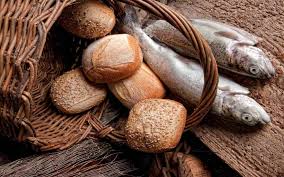I'm going with the romance of God (Spirit, Universe, etc--use your name for It) for its creation, that it is impossible to tell where God ends and creation starts. This gives me the opportunity to share these words of Rachel Held Evans considering what is sacred:
Indeed, the word sacrament is derived from a Latin phrase which means “to make holy.” When hit with the glint of love’s light, even ordinary things become holy. And when received with open hands in the spirit of eucharisteo, the signs and wonders of Jesus never cease. The 150-plus gallons of wine at Cana point to a generous God, a God who never runs out of holy things. This is the God who, much to the chagrin of Jonah, saved the rebellious city of Nineveh, the God who turned five loaves of bread and a couple of fish into a lunch to feed five thousand with baskets of leftovers to spare. This God is like a vineyard manager who pays a full day’s wage for just one hour of work, or like a shepherd who leaves his flock in search of a single lamb, or like a father who welcomes his prodigal son home with a robe, a ring, and a feast.
We have the choice, every day, to join in the revelry, to imbibe the sweet wine of undeserved grace, or to pout like Jonah, argue fairness like the vineyard employees, resent our own family like the prodigal’s older brother. At its best, the church administers the sacraments by feeding, healing, forgiving, comforting, and welcoming home the people God loves. At its worst, the church withholds the sacraments in an attempt to lock God in a theology, a list of rules, a doctrinal statement, a building.
But our God is in the business of transforming ordinary things into holy things, scraps of food into feasts and empty purification vessels into fountains of fine wine. This God knows his way around the world, so there’s no need to fear. . . . There’s always enough—just taste and see. There’s always and ever enough.
That is true love,
Leta

No comments:
Post a Comment